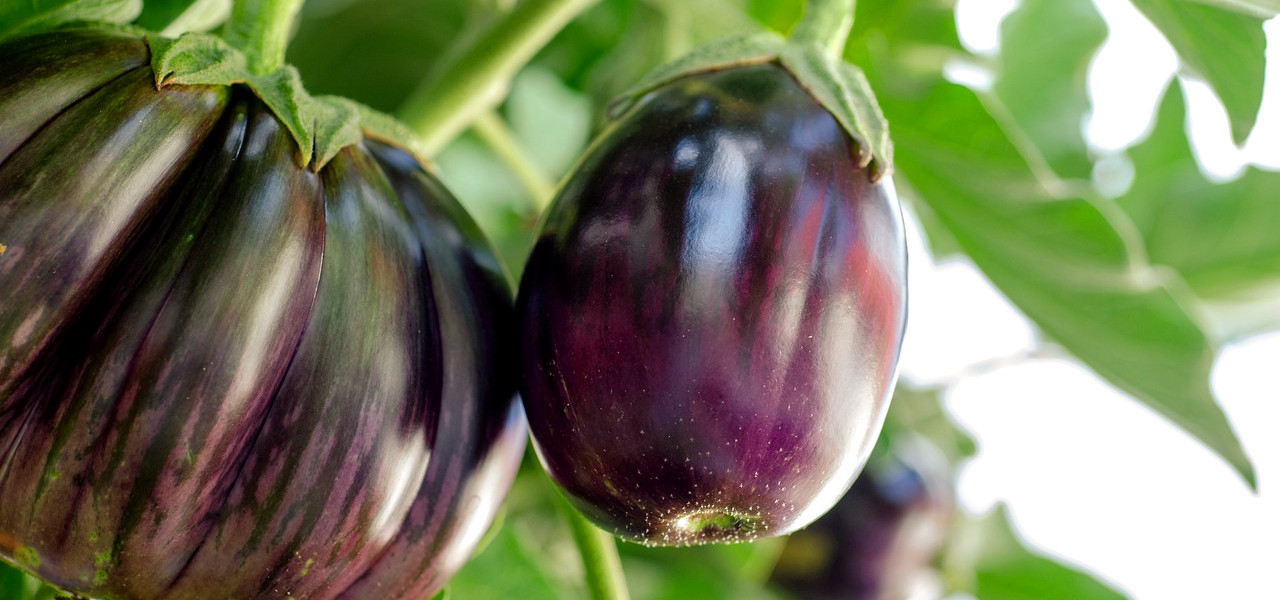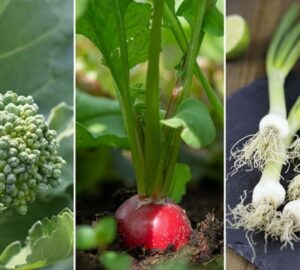With their glossy skin and creamy texture, eggplants (or aubergines) are a culinary favorite around the world — but did you know they’re also a fun and satisfying crop to grow in your own backyard? Whether you’re a complete beginner or just looking to add a new plant to your vegetable patch, eggplants can be a rewarding challenge.
Let’s walk through the essentials of growing Solanum melongena — from seedling to harvest.
Where Eggplants Come From
Native to the Indian subcontinent, eggplants belong to the nightshade family (along with tomatoes, peppers, and potatoes). They’ve been cultivated for centuries across Asia and the Mediterranean, prized for their versatility in the kitchen and their ornamental appeal in the garden.
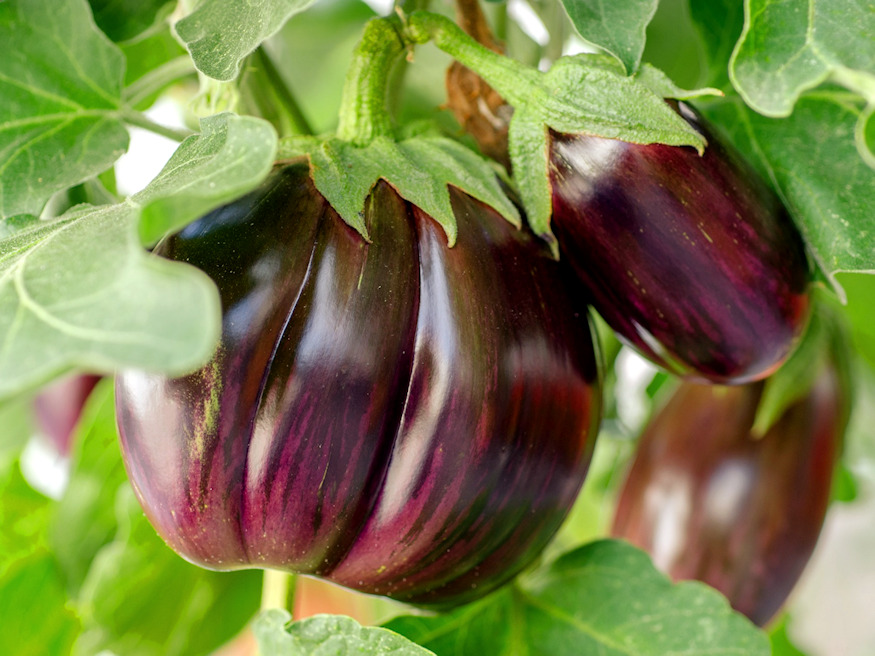
What to Expect from the Plant
Eggplants are upright, bushy plants that grow about 3 to 4 feet (90–120 cm) tall and equally wide. They feature large, soft, slightly fuzzy leaves and can develop surprisingly beautiful pale violet flowers. The fruits themselves vary in shape and color — from the classic deep purple teardrop to round, striped, or even white varieties.
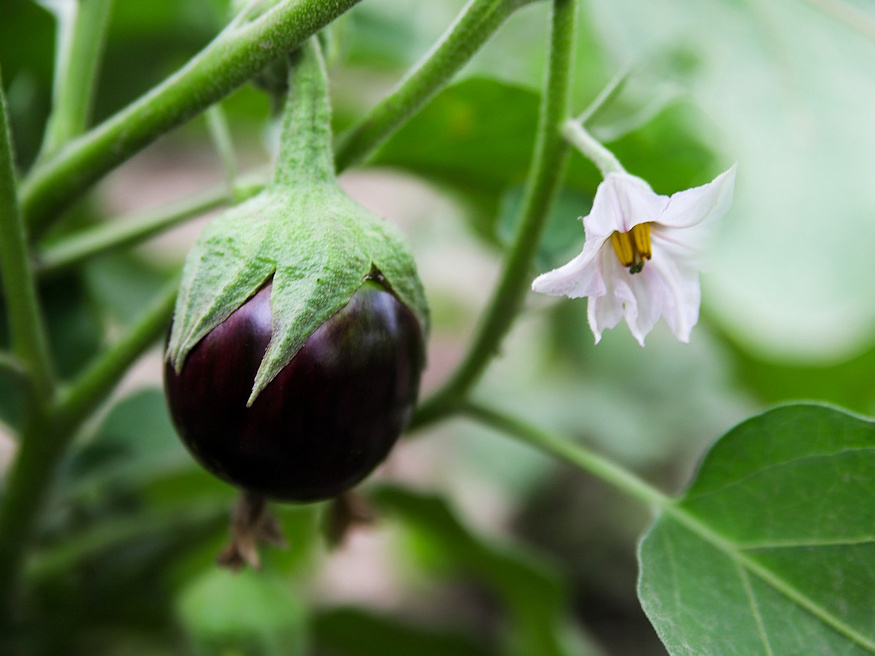
When and How to Plant
Eggplants need warmth and a long growing season, so timing is key:
- Start indoors 6–8 weeks before the last expected frost.
- Transplant outdoors only once nighttime temperatures consistently stay above 10°C (50°F) and the soil has warmed — usually in late spring.
- In very warm climates, you can direct-sow or transplant later in the season.
Pro tip: Use black plastic mulch or dark landscape fabric to warm the soil early and give seedlings a head start.
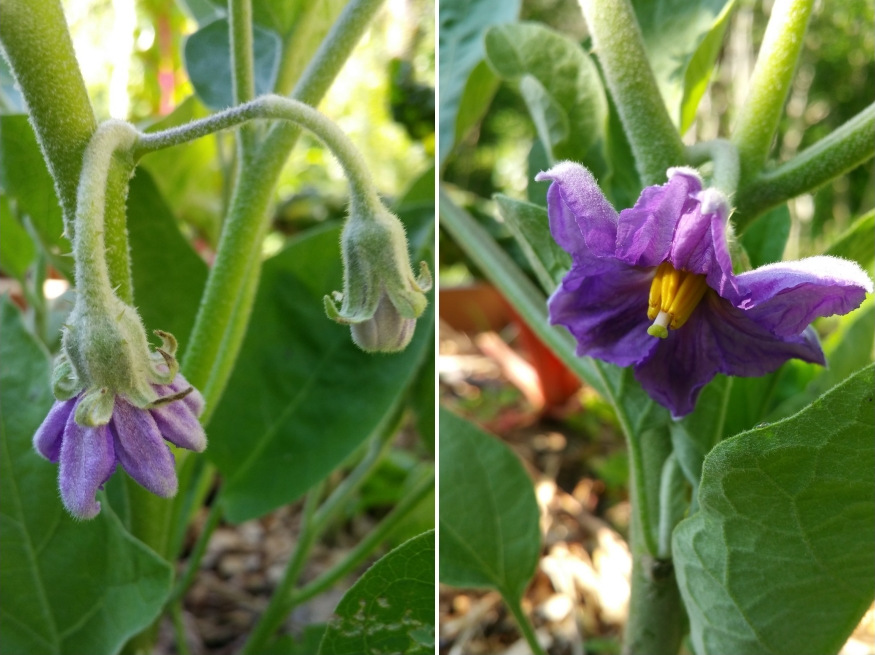
Ideal Growing Conditions
Sunlight
Eggplants love the sun. Choose a location with at least 6–8 hours of full sun per day for optimal growth and fruit set.
Soil
They prefer loamy, well-drained soil, rich in organic matter. Aim for a slightly acidic to neutral pH (6.0–7.0). Before planting, work in plenty of compost or well-rotted manure to boost fertility.
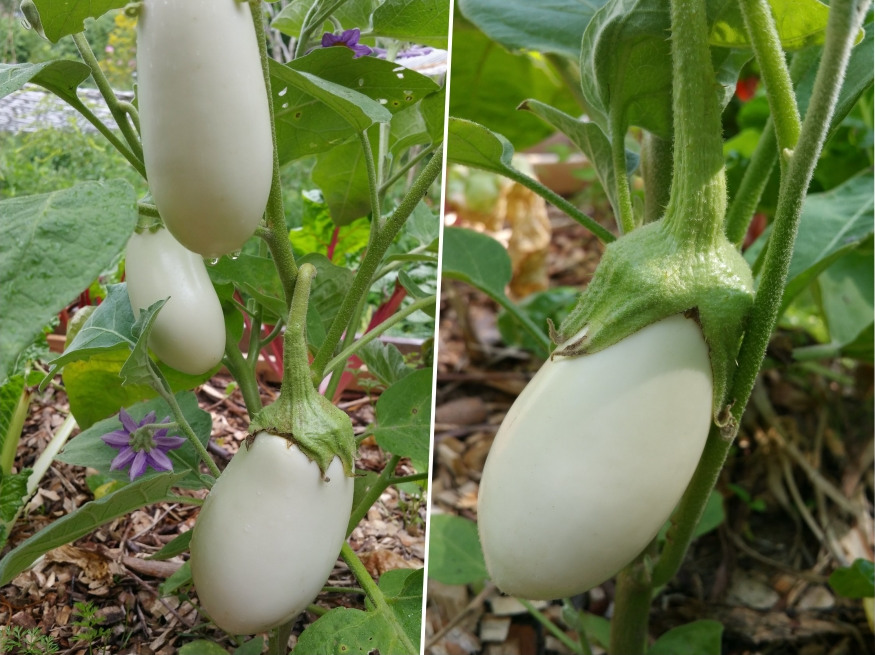
Watering
Eggplants need consistent moisture — drought stress can lead to small or bitter fruits. Water deeply 1–2 times per week (more often in hot, dry weather), always at the base of the plant to avoid leaf disease.
Fertilization
These are heavy feeders. Apply a balanced fertilizer (10-10-10 or similar) every 4–6 weeks. Alternatively, enrich the soil with organic options like fish emulsion, compost tea, or bone meal.
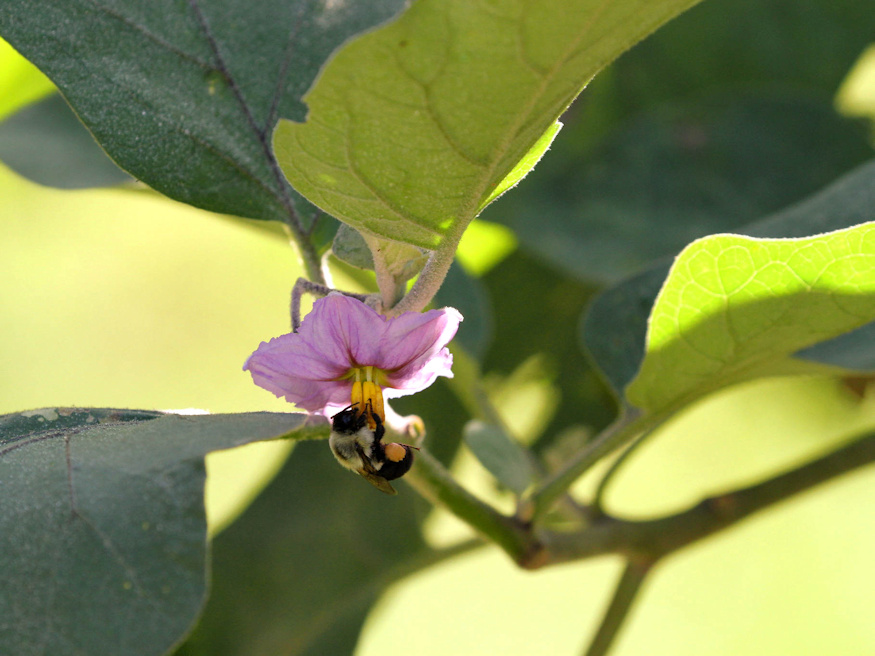
Supporting and Pruning for Better Yields
- Stake or cage taller varieties to prevent heavy branches from snapping under the weight of fruit.
- Pinch the growing tips when plants reach 12–18 inches (30–45 cm) to encourage bushier growth.
- Remove any lower leaves that touch the soil to reduce the risk of disease.
- Light pruning throughout the season improves air circulation and fruit quality.
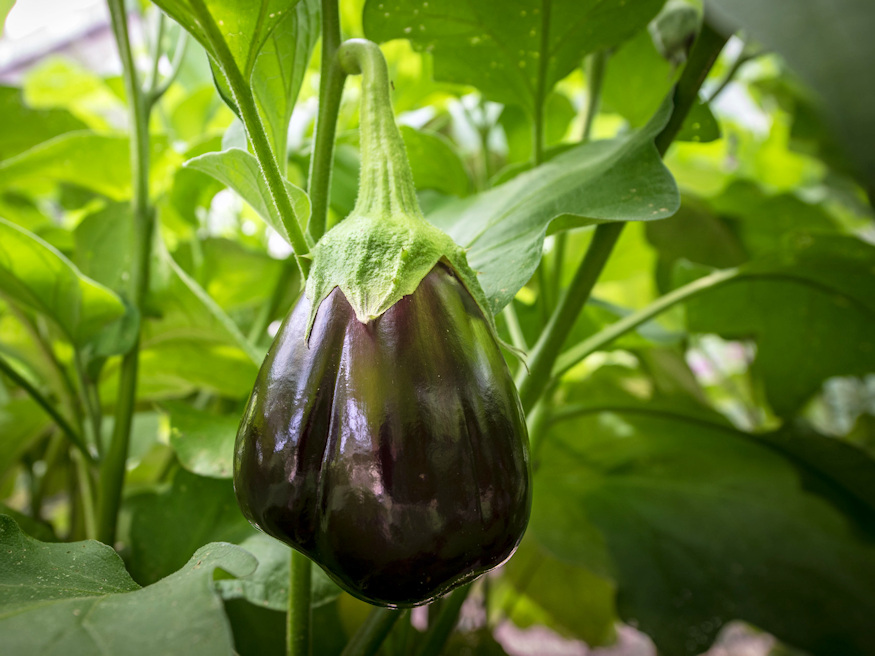
Common Problems (and How to Handle Them)
Eggplants can attract pests and fall victim to fungal diseases. Watch for:
- Flea beetles (tiny holes in leaves) — use row covers early in the season.
- Aphids, spider mites — spray with insecticidal soap or neem oil.
- Verticillium wilt, powdery mildew — rotate crops and avoid overhead watering.
Crop rotation is essential — avoid planting eggplants where other nightshades have grown in the past two years.
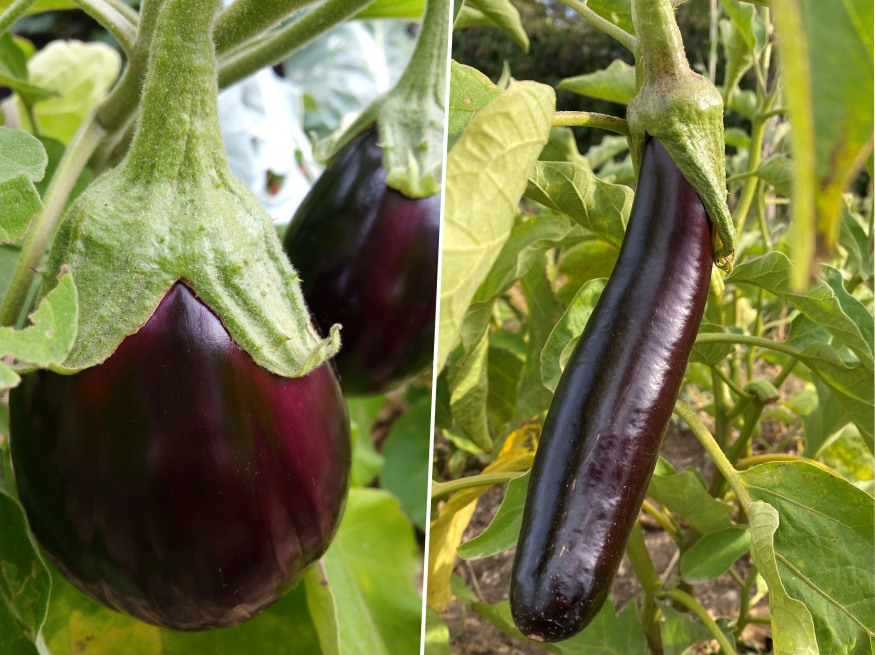
When and How to Harvest
The key to harvesting eggplants? Shine and firmness. Once the skin is glossy and the fruit feels firm (but not hard), it’s ready. Dull skin means it’s overripe.
- Use sharp pruners or a knife — don’t pull or twist, as this can damage the plant.
- Most varieties mature in 60–90 days from transplanting.
Pick often to encourage more fruit to develop!
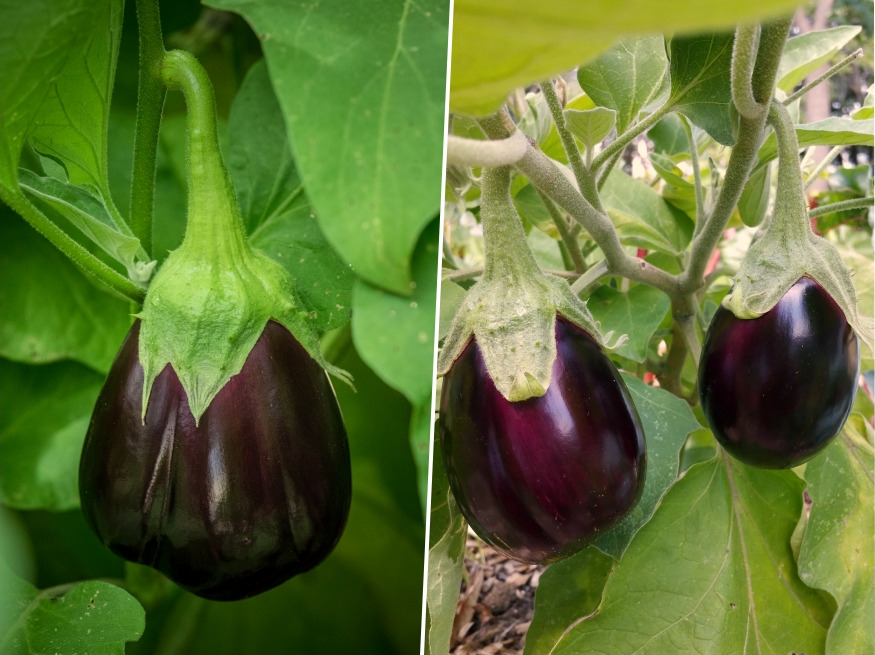
Final Thoughts
Eggplants might not be the easiest vegetable for beginners, but with a bit of planning and consistent care, they’re more than worth the effort. Their elegant fruits, impressive growth, and culinary versatility make them a highlight of any summer garden.
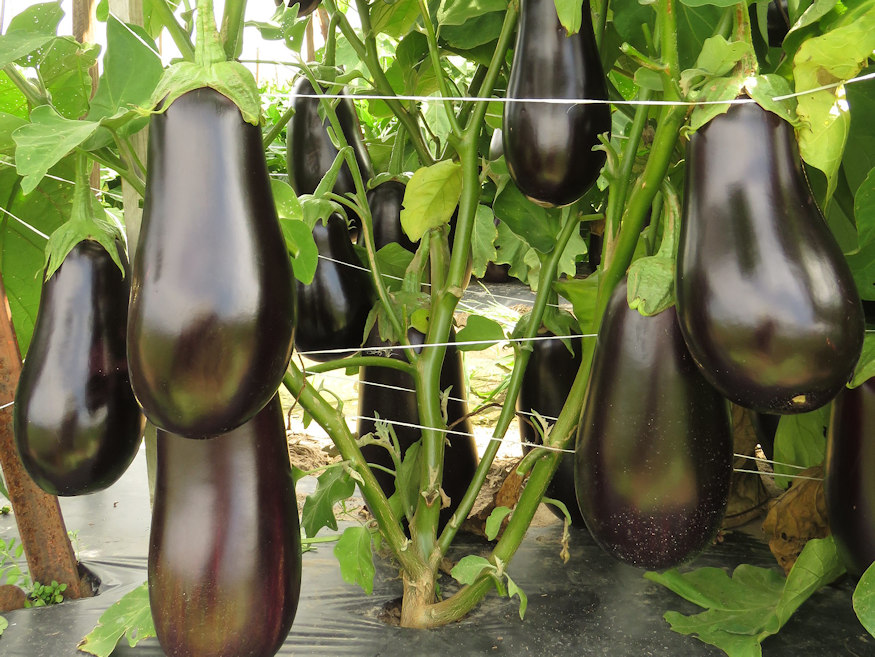
So go ahead — start your own aubergine adventure!



